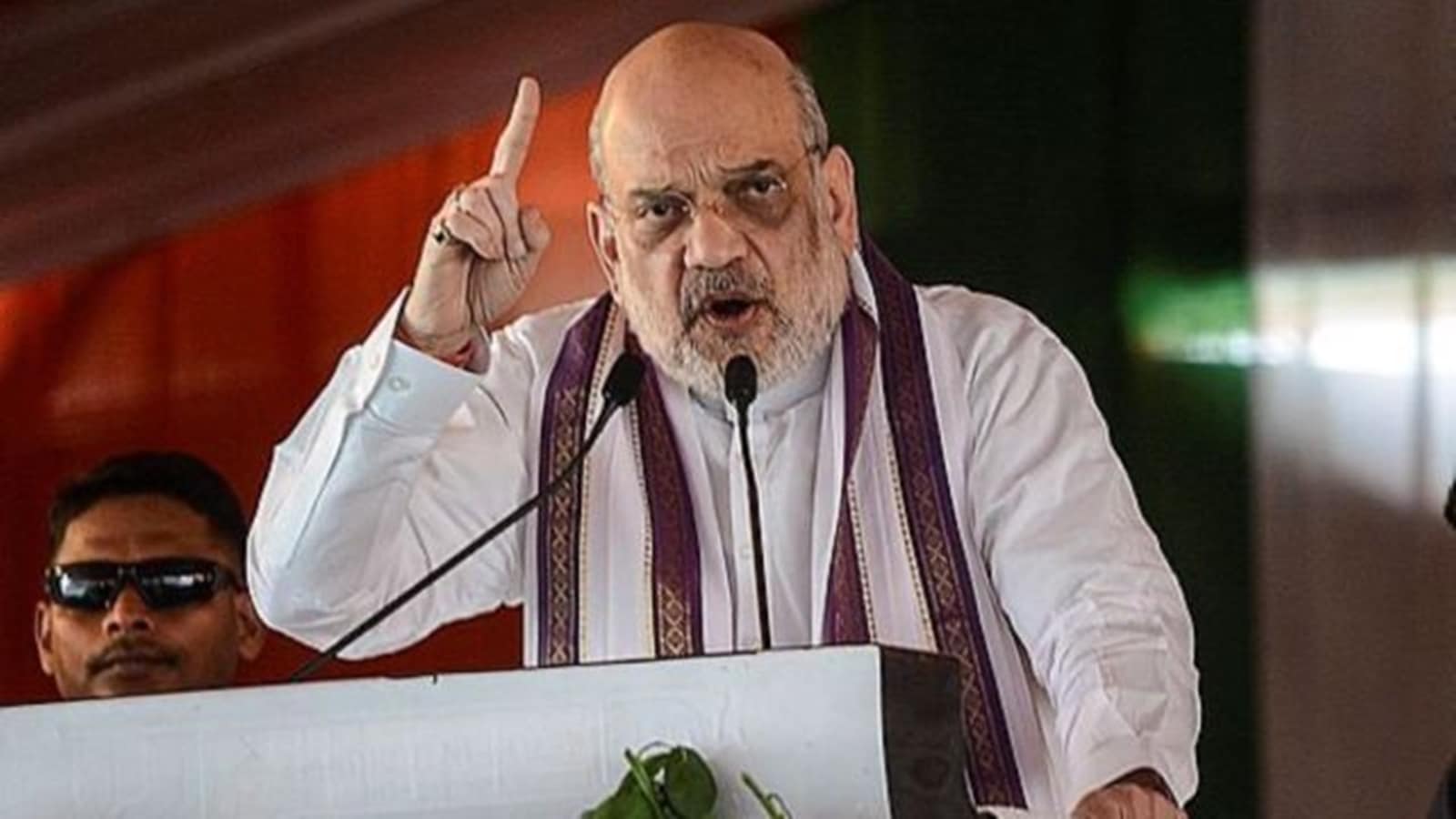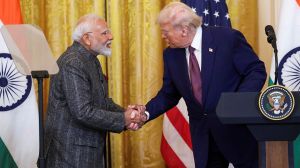Days after senior members of the Trudeau administration alleged that Union Home Minister Amit Shah was behind a campaign to target Khalistan separatists based in Canada, India has lodged a protest “in the strongest terms” through diplomatic channels, calling the allegations “absurd and baseless”.

Responding to questions at a media briefing Saturday, Randhir Jaiswal, spokesperson for the Ministry of External Affairs, said, “We had summoned the representative of the Canadian High Commission yesterday. A Diplomatic Note was handed over in reference to the proceedings of the Standing Committee on Public Safety and National Security in Ottawa on October 29, 2024.”
“It was conveyed in the Note that the Government of India protests in the strongest terms to the absurd and baseless references made to the Union Home Minister of India before the Committee by Deputy Minister David Morrison,” he said.
“In fact, the revelation that high Canadian officials deliberately leak unfounded insinuations to the international media as part of a conscious strategy to discredit India and influence other nations only confirms the view the Government of India has long held about the current Canadian Government’s political agenda and behavioural pattern. Such irresponsible actions will have serious consequences for bilateral ties,” Jaiswal said.
On October 29, Canadian Prime Minister Justin Trudeau’s National Security and Intelligence Adviser Nathalie Drouin and Deputy Foreign Affairs Minister David Morrison acknowledged leaking information to The Washington Post which first reported that Shah was behind the campaign of targeting Khalistan separatists in Canada.
Morrison told Parliament members of the national security committee that he had “confirmed” Shah’s name to The Washington Post which first reported the allegations. “The journalist called me and asked if it was that person. I confirmed it was that person,” Morrison told the committee.
On Saturday, Jaiswal said communications of Indian diplomats were being intercepted by the Canadian government, and New Delhi has formally protested against the audio and video surveillance of its officials with the Canadian government.
Story continues below this ad
“Some of our Consular officials were recently informed by the Canadian government that they have been and continued to be under audio and video surveillance. Their communications have also been intercepted. We have formally protested to the Canadian government as we deem these actions to be a flagrant violation of relevant diplomatic and consular conventions,” he said.
“By citing technicalities, the Canadian government cannot justify the fact that it is indulging in harassment and intimidation. Our diplomatic and consular personnel are already functioning in an environment of extremism and violence. This action of the Canadian government aggravates the situation and is incompatible with established diplomatic norms and practices,” he said.
On reports of cancellation of Diwali celebrations in Canada by Canadian MPs, the MEA spokesperson said, “We have seen some reports in this regard. It is unfortunate that the prevailing atmosphere in Canada has reached high levels of intolerance and extremism.”
On a Canadian cyber security report which names India as an adversary, Jaiswal said, “This appears to be another example of a Canadian strategy to attack India. As I mentioned earlier, their senior officials have openly confessed that they are seeking to manipulate global opinion against India. As on other occasions, imputations are made without any evidence.”
Story continues below this ad
For the first time, India has been described as an adversary in an official Canadian government document. That description came in the National Cyber Threat Assessment 2025-2026, released by the Canadian Centre for Cyber Security last Tuesday. In its section on cyber threat from “state adversaries”, it includes China, Russia, Iran, North Korea and India.
On the issue of visas adversely impacted due to the diplomatic spat and the expulsion of diplomats from each other’s missions, Jaiswal said, “We are obviously monitoring the well-being of students and temporary workers from India who are currently in Canada. Our concern for their safety and security remains strong.”
India’s ties with Canada have been severely strained ever since September 2023 when Trudeau alleged that there was “potential” involvement of the Indian government in the killing of Khalistan separatist Hardeep Singh Nijjar. India rejected the charges as “absurd” and “motivated”. This led to expulsion of diplomats from both countries in two batches – once in October last year, and again last month.









